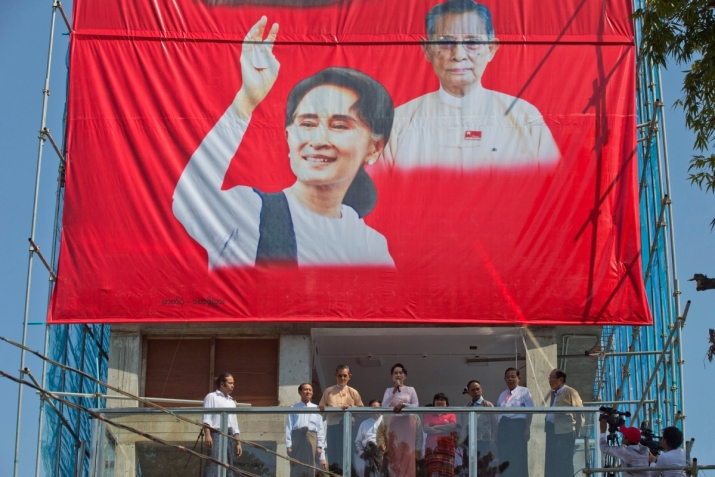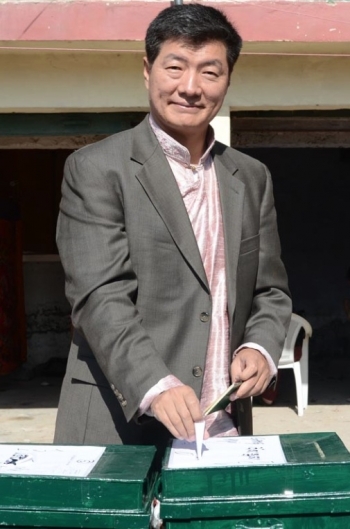“The virtues of patience and non-violence that you espouse are a source of strength for the entire world including the Tibetan people. Tibet, besides sharing a common Buddhist heritage, is unified with the people of Myanmar by their deep commitment to democracy, the universality of human rights, religious harmony, and the brotherhood of all peoples,” he added. “I wish you all the success as you embark upon your new responsibilities and hope that you will raise your pivotal voice for a quick resolution of the Tibet issue just as you have done to usher in democracy in Myanmar.” (Central Tibetan Administration)
As a clause in the constitution bars Myamar citizens with foreign spouses from the presidency, Suu Kyi, whose late husband was a British academic, will be unable to take office; however, the NLD leader has said she plans to appoint a president to work under her direction. In an interview on Tuesday, she said, “The president will be told exactly what he can do. I make all the decisions because I am the leader of the winning party.” (The New York Times)
This democratic victory marks the second time Suu Kyi’s party has won the mandate of the people of Myanmar. After a similar victory in 1990, the country’s military junta nullified the poll and placed Suu Kyi under house arrest, which was to last a total of 15 years. The following year, she was awarded the Nobel Peace Prize for her non-violent campaign for democracy. A devout Theravada Buddhist, while under house arrest Suu Kyi devoted her time to Buddhist meditation practices and to studying Buddhist philosophy and thought.
















